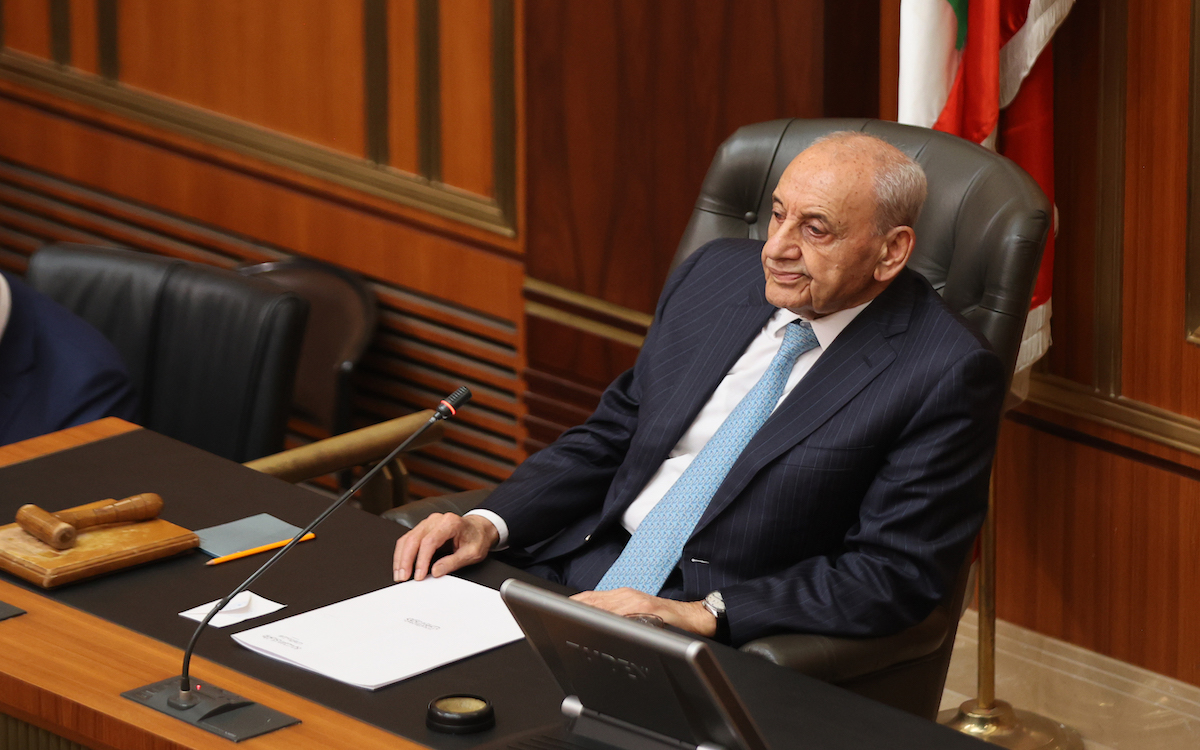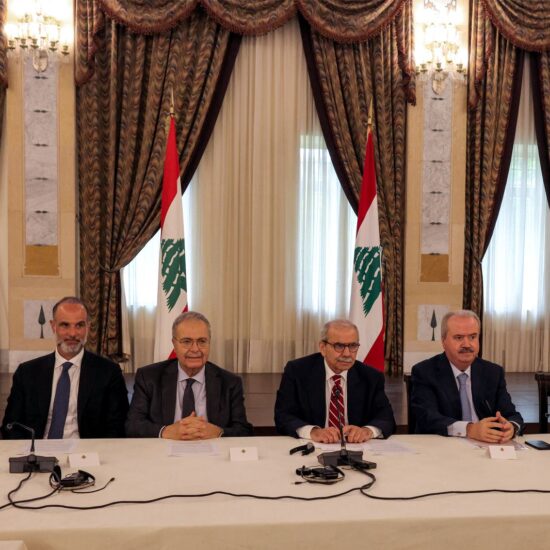
Lebanon’s Parliament failed for a 12th time to elect a new president ensuring that the 225-day power vacuum will continue for the foreseeable future.
This vote came after a nearly five-month gap in-between votes but, despite the initial support for opposition-backed candidate Jihad Azour, few believed that this electoral session would yield different results from the first 11 attempts.
The vote: While no one was ultimately elected in the first and only round of voting, there continued to be two leading candidates backed by the two main camps in Parliament.
Azour, the only candidate with significant Christian support after the Free Patriotic Movement broke with Hezbollah to back him, and who also enjoys the vote of the majority of the opposition, received 59 votes, while Sleiman Frangieh, backed by Hezbollah and its allies, received 51 votes.
Former Interior Minister Ziyad Baroud also received seven votes and army commander Joseph Aoun received one. The remaining votes were either protest votes, blank or canceled.
Parliamentary Speaker Nabih Berri was also criticized for not recounting votes when he was accused of hiding one vote that was potentially for Azour. Adnan Daher, the secretary-general of Parliament, later said that the “lost vote” was found and it was only an empty envelope with no vote given. Daher added that he informed the various parliamentary blocs and offered to recount the votes but the blocs refused.
It became increasingly clear that no president would be elected today when Hezbollah and Amal MPs began to leave the chamber while the votes were being counted. This ensured that no candidate would receive a two-thirds majority, and Berri would have to end the session due to a lack of quorum. Both Hezbollah and the opposition hinted that they would do this depending on how the vote went for their respective candidates.
While no one truly expected Azour to win in the first round of voting, it was widely believed that he would be able to win at least a simple majority, making the fact that he fell short of that a clear example of the lack of cohesion amongst the opposition MPs.
Doomed from the start: When Azour’s candidacy was still only rumored, talk that the FPM would join the opposition quickly made the former finance minister’s candidacy go from just another name to a serious contender.
When these rumors turned out to be true, the opposition moved quickly to coalesce around Azour’s candidacy with the Lebanese Forces, FPM, Progressive Socialist Party and independent MPs all announcing their intentions to vote for Azour. MP Michel Moawad (Zgharta–Independence Movement), who had been the leading candidate for the opposition up until this point, even announced that he would no longer be seeking the presidency and would himself vote for Azour.
Although Azour’s start appeared to be on the ascent, where his support ultimately faltered was with the “change” MPs who were divided over whether or not to support him.
Some, such as Marc Daou (Aley-Independent) and Michel Douaihy (Zgharta-Independent), were quick to announce that they would vote for Azour while others, such as Halime Kakour (Chouf-Independent) and Elias Jarade (Maarjayoun and Hasbaya-Independent), said that they would not vote for Azour as they did not view him as a suitable candidate.
Ibrahim Menimneh (Beirut II-Independent) ultimately ended up announcing his support for Azour in this vote during the evening of June 13, but he expressed reservations about his candidacy, hinting at the possibility that he may not continue to vote for Azour.
This breakdown amongst the “change” bloc helped to ensure that not only did Azour not win the presidency, but also diluted his vote count.
A third candidate: Azour stands little chance of being elected due to Hezbollah‘s opposition to his candidacy and Frangieh lacks any meaningful Christian support in Parliament. This impasse has led to some talking about the need for a third “consensus” candidate that can bring the two sides together.
In the initial months of the presidential elections, it was speculated that army commander Joseph Aoun would ultimately be tapped, but Hezbollah made it clear that they would not consent to Aoun being elected, framing him as an American puppet.
Currently, the name floating around as a possible consensus candidate is Ziyad Baroud, who has had limited support throughout several of the 12 electoral sessions held so far.
A long way to go: Despite the dire need for a consensus candidate to break the deadlock, neither side has given any indication that they are open to negotiating over other names.
Because of this, the political and economic crises are likely to continue with little to nothing done to improve the dire situation that Lebanon is facing.
Nicholas Frakes is a senior reporter with @NOW_leb. He tweets @nicfrakesjourno.








